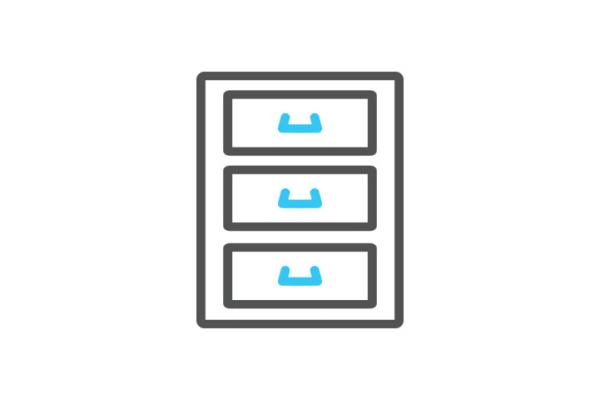The European Commission provides funding for Actions in the area of SoHO through the EU4Health programme 2021-2027 and previous EU Health Programmes, mainly in the form of projects or joint actions with national authorities. In addition, the European Parliament has proposed to fund some pilot projects in this field.
Actions aim at supporting the EU mandate on safety and quality, but can also serve to promote other policy priorities, such as improving the availability of SOHO or the efficiency of the health systems that support donation and supply.
The European Health and Digital Executive Agency (HaDEA) manages calls for proposals for projects and organises grants, conferences and relations with the beneficiaries of health programme funding.
Innovative projects promoting health development can receive EU funding from the health programme, as a means of implementing the EU health strategy.
To implement the legislation, the EU supports various activities. It cooperates with expert bodies in the field to produce guidelines, coordinates and facilitates action of national competent authorities and hosts IT systems for joint vigilance.
Vigilance
Vigilance is a key element of the regulatory framework for substances of human origin. EU legislation requires tissue and blood establishments, as well as transplant centres and hospitals, to notify their competent authorities about any serious adverse reactions or events (SARE) in patients.
Competent authorities submit annual reports to the European Commission and based on these, the Commission prepares annual summaries on serious adverse outcomes in the EU. These reports and summaries provide a resource for improving donation and transfusion/transplantation practices in the EU. A dedicated vigilance expert sub-group is monitoring SARE reporting to maximise lessons learned.
- Blood - Common approach for definition of reportable Serious Adverse Events and Reactions (SARE)
- Tissues and cells - Common approach for definition of reportable Serious Adverse Events and Reactions (SARE)
The Commission also hosts a Rapid Alert System for Blood and Blood Components (RAB) and a Rapid Alert System for human Tissues and Cells (RATC), which provides an effective and secure tool for immediate exchange of information considered to have a safety or quality impact in two or more EU countries.
The Commission encourages national participation in the WHO's NOTIFY Library - a website where experts from across the globe share information on selected and documented adverse outcomes associated with the donation, processing or clinical use of human organs, blood, tissues and cells. The website's purpose is instructive, providing expert review and additional information on the records shown.
Vigilance Expert Sub-Group (VES)
The Commission Expert Sub-Group on Vigilance of Blood, Tissues and Cells (VES) is an active sub-group of the Competent Authorities on Substances of Human Origin Expert Group, which started its work in January 2017. The mandate was extended to include organs in 2018.
The primary objectives of VES are:
- to provide technical expertise
- to formulate advise to the Commission's services and
- to facilitate
- the conduct of the annual reporting by the EU countries on serious adverse reactions or events (SARE) associated with blood, tissues and cells
- the improvement of the common approach for definition of reportable SARE and
- the analysis and publication by the Commission of annual summaries of aggregated data from the EU countries reports
Although there is no legal requirement for SARE reporting at the EU level for organs, VES provides a forum for sharing national expertise and experiences of vigilance in that field. It can suggest improvements to Commission work with the Council of Europe's European Directorate for the Quality of Medicines & Healthcare (EDQM), contracted to perform the annual data collection, compilation and analyses of national serious adverse reactions or events data.
This sub-group also represents a forum for the exchange of information and experiences between the different EU countries regarding the rapid alert systems hosted by the European Commission. The alert platforms RAB and RATC provide an effective and secure tool for immediate exchange of information considered to have a safety or quality impact in two or more EU countries.
These platforms are used to share information related to specific incidents and to facilitate appropriate actions to mitigate risk at EU countries level. It is also useful to liaise with the experts of the Notify Library.
Inspection Expert Sub-Group (IES)
The Commission Expert Sub-Group on Inspections in the Blood and Tissues & Cells Sectors (IES) is an active sub-group of the Competent Authorities on Substances of Human Origin Expert Group, which started its work in January 2019.
The primary objectives of the IES are to provide technical expertise and formulate advice and comment to the Commission’s services on matters related to inspections and inspection systems in the blood and tissues and cells sectors.
The IES also represents a forum for the exchange of information and experiences between the different EU countries regarding their national inspection programmes in the blood and tissues and cells sectors.
The overall aim is to encourage further mutual recognition of inspections in the blood, tissues and cells sectors across the EU countries and provide a platform for EU-level collaboration on such activities.
More information
Traceability: Single European Code
The tissues and cells intended for human application in the EU must be traceable from donor to recipient, and vice versa. A unique identifier called the Single European Code (SEC), together with its accompanying documentation, allows for this traceability and provides information on the main characteristics of tissues and cells for human use.
Users can retrieve relevant information on tissue and cell products through a publicly accessible IT platform. This platform gives access to the names of all authorised establishments in the EU, including their contact details, and those of the authorities overseeing them, as well as the different tissues and cells types distributed in the EU.






